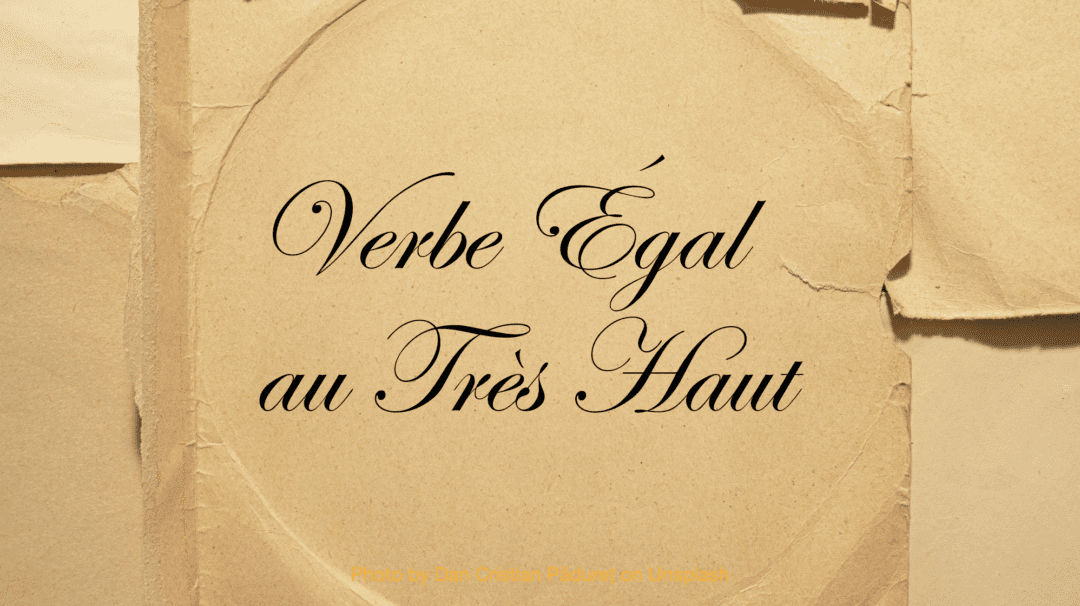The Power of Words
As a teenager, I discovered the Cantique de Jean Racine, Op. 11 , by Gabriel Fauré, singing in my school choir at the age of 16. It’s a sublime piece. It elevates the spirit. And almost 50 years later, I return to this song to appreciate the importance of the word, but in a completely different context. I invite you to listen to it here:
In many schools in the western world, the subject of spelling and grammar is tricky. What does it matter to write flawlessly, some ask, praising the pleasures of videos, the variety of emojis and emoticons, and the plethora of images. With my age (nearly 60), one might imagine that it is just a stodgy, reactionary thought to want to remain vigilant about spelling. You could indeed call me a traditionalist, wanting to preserve dictations, polite, even formal language. However, the fact is that much of our modern life, the one that specifically concerns the younger generations, is sustained by the word. It is not without irony that I note that Fauré was only 19 years old when he wrote this magnificent work. What’s for sure is that a misspelt word can mean very different things, many words have multiple, even disparate meanings. To the extent the English language has well over 500,000 words and an alphabet of 26 letters, nearly all words will become different, unrecognisable or illegible after just a single letter change. [I provide here a small plug for the intriguing and historically relevant 2019 film, The Professor and the Madman, featuring Mel Gibson and Sean Penn, on the birth of the Oxford English Dictionary].
But why does the word (and spelling) matter so much today?
As much as I was not a highly gifted student at concise writing and accurate spelling in my youth, I have always appreciated beautiful penmanship and languages. After all, my major at university was Trilingual Literature. But today, without going into the controversies of gender or the beauty of linguistic irregularities, the power of the word remains fundamental. Like the 2017 French film “ Le Brio ,” (a title I note that was not translated in English, but was massacred when translated into other languages), directed by Yvan Attal and with Daniel Auteuil in the lead role of Professor Pierre Mazard, we see a sensitive and sensible treatment of the power of the word. As the French iconic musician, Serge Gainsbourg, says in the first shots of Attal’s film, “it is the words which convey the idea and not the idea which conveys the word.” In a world where we are in the process of retooling gender, of censoring entire themes and settling for communications devoid of depth — with in parallel or perhaps as a consequence increased mental health problems — we are living in a period of crisis of meaning. And what could be more ironic than the lack of meaning in our words.
Words are the basis of modern technology…
Despite the zettabytes of videos that exist and are being uploaded every minute, these moving pictures must go through a code written in words and need to be tagged and transcribed into text. As any programmer knows, code must be precise. It cannot deviate from the straight line. When briefing an agency or giving instructions, the words are significant. What Gainsbourg said was true. In business, we know how important communication is. It’s the lifeblood of an organisation, whether it is an NGO, the military or a for-profit company. Communication passes through words, just as a culture is formed by its language, rites and behaviours. The advancement of our civilisation relies on the intelligence — and mutual understanding — of our language. And with the artifice of intelligence that is being created through machines, we can surely observe how central to AI is the sense of the word. Let us then preserve the value and weight of the good word.
Verbe égal au Très-HautNotre unique espérance
or in English:
Word, equal to the Highest,
Our only Hope…











